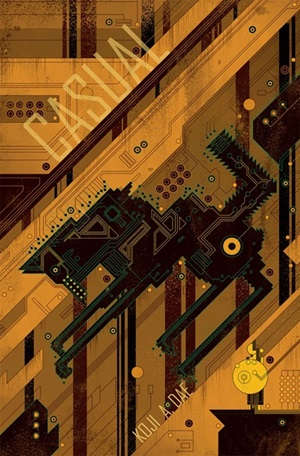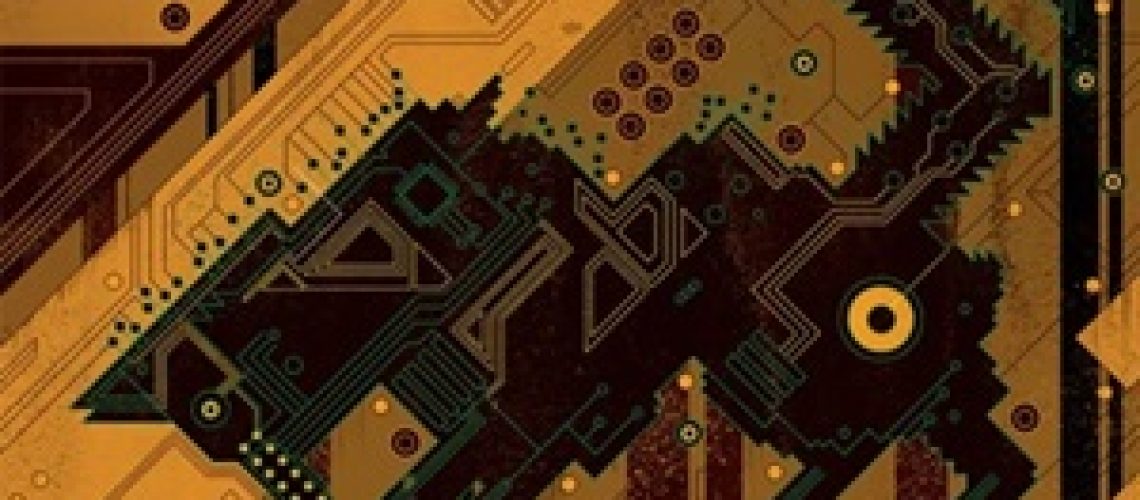Koji A. Dae’s new novel CASUAL is deeply personal science fiction that focuses on a woman’s emotional and mental health journey as she prepares for childbirth and makes crucial decisions about experimental health technology. I haven’t read anything by her before, but I was intrigued by the promotional description for her new book:
Valya’s neural implant is amazing.
CASUAL managed her depression and anxiety, stabilized her mood, and helped her get pregnant; but new laws forbid her from using the device when she’s sole caregiver for her infant, so Valya needs to detox before giving birth. The full-blown panic attacks have her considering a controversial clinical trial that would place a tandem implant in her unborn baby and allow Valya to keep hers active. Her only options are to attempt solo parenting without CASUAL, or install a minimally tested device in her vulnerable child.
CASUAL is an implant that facilitates immersion into a game-ified application, which soothes Valya with gentle virtual adventures in nature. It has worked better to keep Valya stable than any drugs she’s ever been prescribed. However, because users can lose track of time and become oblivious to external stimuli, such as a crying baby, she’ll have to either kick CASUAL or lose her child to government care immediately after the birth. She tries to wean herself off it, but she’s struggling, particularly since she’s still grieving the breakup with her boyfriend, the unknowing father. She’s losing sleep and having panic attacks, and her “psycher” (psychologist?) urges her to consider a clinical trial that would satisfy regulations by means of a tandem implant in her newborn that would keep her in constant mental contact with her baby girl via CASUAL.
Valya is firmly against signing up for medical experimentation on her baby, but she doesn’t have much support. Her childhood best friend is married with kids and a bit too busy to keep being Valya’s crying towel; moreover, Valya’s vlog fanbase has dropped off since her dreamy star-environmentalist boyfriend dropped her, so she can’t get a sponsorship to supplement her basic income and make a better life for the baby, maybe move to a better habitat/neighborhood. Valya’s gynecologist keeps telling her she’s strong and can survive without CASUAL, and refuses to prescribe antidepressants or anti-anxiety drugs as a substitute for it, this late in the pregnancy. Meanwhile, the nightmares (and occasional daymares) are getting worse, with a recurring menacing figure, but she’s losing her trust in her psycher for various reasons.

Dae does a great job of writing in Valya’s voice (first person, past tense) so that it’s easy to sympathize with the protagonist, without necessarily agreeing with her choices. She clearly cares deeply for “baby-girl” and is trying hard to make good plans and be a good mother-to-be; however, she’s had a hard life, with an impoverished childhood that was neglected, at best, and although she doesn’t think about it this way, it becomes obvious that her first serious relationship was with a self-righteous control freak who got her to drop out of college.
Valya does have a problem with facing facts, which is part of why it’s been so easy for her to lose herself in CASUAL; however, Valya eventually pushes herself outside her comfort zones to act bravely in various ways to try to secure her future with her baby. And although decreasing her use of CASUAL is extremely stressful, the resultant self-examinations and nightmares do lead her to make some crucial realizations about herself and her past, and what she wants for the future. Some of her choices after that are surprising, and it’s unclear whether they will actually bring about the better life that she desires, but it does seem that she has gained the self-knowledge and self-confidence to be a stronger woman and mother.
The Content Warnings at the end of the book say that “Being a book of mature Horror, a degree of violence, gore, sex and/or death is to be expected. …” I wouldn’t call this a horror book, myself; although there are some horrific elements, they are not overwhelmingly pervasive, and the mood is much more about Valya’s anxiety over the future than any looming dread of harm.
CASUAL is set after some kind of widespread environmental cataclysm, but although the ex is passionate about this, it doesn’t really matter much to the plot. It feels much more like near-future science fiction than post-apocalyptic, and despite the advanced medical technology of CASUAL, the plot focuses on issues that are extremely relatable to current dilemmas. I found the book quite interesting, and I’ll be happy to read other works by Dae.
Content warnings: Abusive/controlling relationships, and references to rough sex and obliquely offscreen child sexual abuse; privacy violations; anxiety, depression, and panic attacks; and pregnancy and medical procedures.
Disclaimer: I received a free ebook from the publisher for review.







